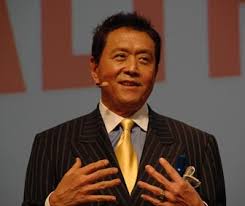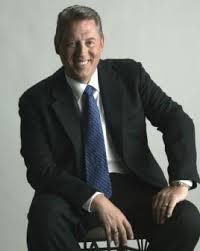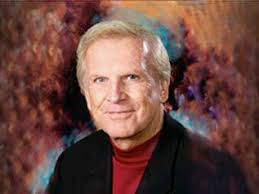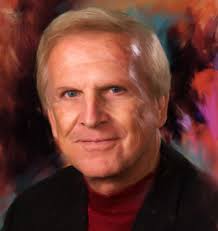by
Jim RohnEmotions are the most powerful forces inside us. Under the power of emotions, human beings can perform the most heroic (as well as barbaric) acts. To a great degree, civilization itself can be defined as the intelligent channeling of human emotion. Emotions are fuel and the mind is the pilot, which together propel the ship of civilized progress.
Which emotions cause people to act? There are four basic ones; each, or a combination of several, can trigger the most incredible activity. The day that you allow these emotions to fuel your desire is the day you'll turn your life around.
1) DISGUSTOne does not usually equate the word "disgust" with positive action. And yet properly channeled, disgust can change a person's life. The person who feels disgusted has reached a point of no return. He or she is ready to throw down the gauntlet at life and say, "I've had it!" That's what I said after many humiliating experiences at age 25. I said, "I don't want to live like this anymore. I've had it with being broke. I've had it with being embarrassed, and I've had it with lying."
Yes, productive feelings of disgust come when a person says, "Enough is enough."
The "guy" has finally had it with mediocrity. He's had it with those awful sick feelings of fear, pain and humiliation. He then decides he is not going to live like this anymore." Look out! This could be the day that turns a life around. Call it what you will, the "I've had it" day, the "never again" day, the "enough's enough" day. Whatever you call it, it's powerful! There is nothing so life-changing as gut-wrenching disgust!
2) DECISIONMost of us need to be pushed to the wall to make decisions. And once we reach this point, we have to deal with the conflicting emotions that come with making them. We have reached a fork in the road. Now this fork can be a two-prong, three-prong, or even a four-prong fork. No wonder that decision-making can create knots in stomachs, keep us awake in the middle of the night, or make us break out in a cold sweat.
Making life-changing decisions can be likened to internal civil war. Conflicting armies of emotions, each with its own arsenal of reasons, battle each other for supremacy of our minds. And our resulting decisions, whether bold or timid, well thought out or impulsive, can either set the course of action or blind it. I don't have much advice to give you about decision-making
except this:
Whatever you do, don't camp at the fork in the road. Decide. It's far better to make a wrong decision than to not make one at all. Each of us must confront our emotional turmoil and sort out our feelings.
3) DESIREHow does one gain desire? I don't think I can answer this directly because there are many ways. But I do know two things about desire:
a. It comes from the inside not the outside.
b. It can be triggered by outside forces.
Almost anything can trigger desire. It's a matter of timing as much as preparation. It might be a song that tugs at the heart. It might be a memorable sermon. It might be a movie, a conversation with a friend, a confrontation with the enemy, or a bitter experience. Even a book or an article such as this one can trigger the inner mechanism that will make some people say, "I want it now!"
Therefore, while searching for your "hot button" of pure, raw desire, welcome into your life each positive experience. Don't erect a wall to protect you from experiencing life. The same wall that keeps out your disappointment also keeps out the sunlight of enriching experiences. So let life touch you. The next touch could be the one that turns your life around.
4) RESOLVEResolve says, "I will." These two words are among the most potent in the English language. I WILL. Benjamin Disraeli, the great British statesman, once said, "Nothing can resist a human will that will stake even its existence on the extent of its purpose." In other words, when someone resolves to "do or die," nothing can stop him.
The mountain climber says, "I will climb the mountain. They've told me it's too high, it's too far, it's too steep, it's too rocky, it's too difficult. But it's my mountain. I will climb it. You'll soon see me waving from the top or you'll never see me, because unless I reach the peak, I'm not coming back." Who can argue with such resolve?
When confronted with such iron-will determination, I can see Time, Fate and Circumstance calling a hasty conference and deciding, "We might as well let him have his dream. He's said he's going to get there or die trying."
The best definition for "resolve" I've ever heard came from a schoolgirl in Foster City, California. As is my custom, I was lecturing about success to a group of bright kids at a junior high school. I asked, "Who can tell me what "resolve" means?" Several hands went up, and I did get some pretty good definitions. But the last was the best. A shy girl from the back of the room got up and said with quiet intensity, "I think resolve means promising yourself you will never give up." That's it! That's the best definition I've ever heard: PROMISE YOURSELF YOU'LL NEVER GIVE UP.
Think about it! How long should a baby try to learn how to walk? How long would you give the average baby before you say, "That's it, you've had your chance"? You say that's crazy? Of course it is. Any mother would say, "My baby is going to keep trying until he learns how to walk!" No wonder everyone walks.
There is a vital lesson in this. Ask yourself, "How long am I going to work to make my dreams come true?" I suggest you answer, "As long as it takes." That's what these four emotions are all about.
To Your Success,
Jim Rohn





























